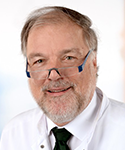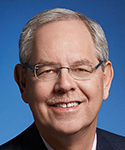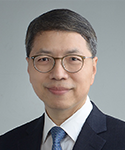Program details
-
PL1 Plenary lecture 1
Chair(s): Kyu Chang Won
Friday 20 October, 11:10~11:50
Room 1+2+3 (3F)
-
Incretin-based therapy has been a central place in the treatment of diabetes for its solid benefits regarding not only weight reduction and cardioprotective effects. Michael A. Nauck is a one of the world-renowned scholar in diabetes and incretin research field. He has a particular research interest in the role and impact of gastrointestinal peptide hormones in the physiological and therapeutic stimulation of insulin secretion. He has been honoured with several awards for his research, including Claude Bernard Prize (2022). In this meeting, his lecture will take you on a journey through the historic discovery and drug development of incretins, providing novel insights into the current and future treatment of diabetes.
-
-
 PL1
PL1
Michael A Nauck
St. Josef Hospital, Ruhr University Bochum, Germany
-
Novel insights regarding GLP-1 receptor agonist treatment
-
PL2 Plenary lecture 2
Chair(s): Kyoil Suh
Friday 20 October, 15:00~15:40
Room 1+2+3 (3F)
-
The prevalence of NAFLD is approximately 65% or more in people with diabetes. NAFLD-related hepatic fibrosis is the fastest rising cause of diseases requiring liver transplantation. Many studies have shown that worsening stages of the disease, are associated with a progressively increased risk of adverse clinical outcomes. Recently, there have been remarkable advances in the study of liver fibrosis. In this lecture, Dr. Friedman will give us directions for the latest knowledge and clinical implication on the treatment of liver fibrosis related to metabolic diseases.
-
-
 PL2
PL2
Scott Friedman
Icahn School of Medicine at Mount Sinai, USA
-
Hepatic fibrosis, the silent threat of the metabolic syndrome
-
PL3 Plenary lecture 3
Chair(s): Min-Seon Kim
Saturday 21 October, 11:00~11:40
Room 1+2+3 (3F)
-
Type 2 diabetes is a complex multigenic disorder affected by environmental and genetic factors. East Asian has been recognized to have different clinical characteristics compared to Europeans. Genetic variations may influence the ethnicity-specific clinical characteristics of type 2 diabetes. Recent advances in genetic sequencing technologies have enabled the investigation of genetic variants particular to people. This plenary lecture will give the latest information about the endotypes of type 2 diabetes in East Asians.
-
-
 PL3
PL3
Kyong Soo Park
Seoul National University, Korea
-
Endotypes of type 2 diabetes in East Asians
 PL1
PL1 PL2
PL2 PL3
PL3


